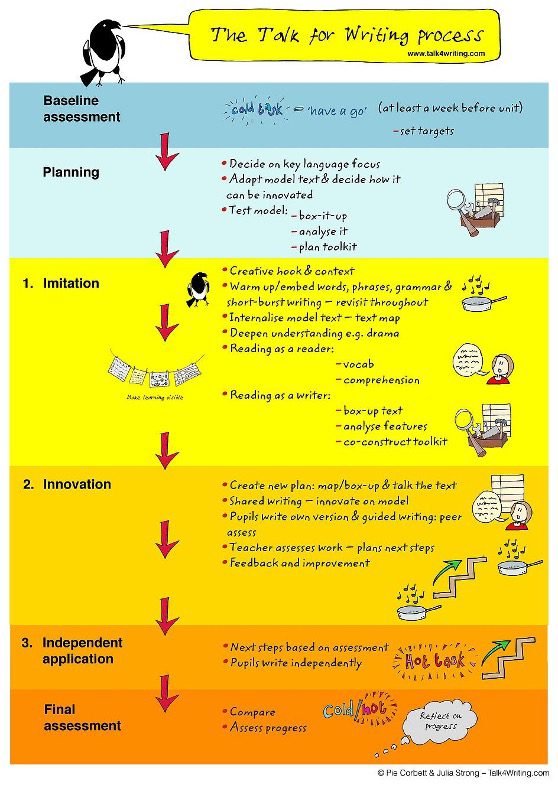Through our English curriculum, we aim to nurture in the children a love of literature and language and the confidence to continue reading and writing throughout their lives. We focus on the teaching and learning of transcription (spelling and handwriting) and composition (articulating ideas and structuring them in speech and writing).
At Ratby Primary School, we take every opportunity possible to enhance the cultural capital of our learners and equip them with the knowledge and experiences needed in the wider world. Texts are chosen to introduce children to cultural diversities, develop empathy and promote curiosity, whilst intertwining writing opportunities for the children to explore the texts read and to further express themselves through the written word. Pupil led learning generously provides opportunities for children to apply their skills through activities such as scientific enquiries, debates, speeches, presentations and creative outcomes.
We aim for children to be independent writers. We teach them to use punctuation and grammar accurately, to be able to proofread their own work and make amendments and improvements. Teachers encourage children to write clearly and with confidence in any given genre. Great value is placed on the development of correct letter formation and neatly presented handwriting. We give children a wide range of opportunities in which to develop their writing skills and display work of which they are proud.
We ensure that pupils are taught how to plan, revise and evaluate their writing. Writing down ideas fluently depends on effective transcription: that is, on spelling quickly and accurately through knowing the relationship between sounds and letters (phonics) and understanding the morphology (word structure) and orthography (spelling structure) of words.
How we teach writing:
The aim of our writing curriculum is to promote the highest standards of language and literacy by equipping children with a strong command of the spoken and written word and to develop their love of literature. It is taught through:
- Organising the writing around our main topics in each year group
- Ensuring there is a clear audience and purpose to writing
- Model texts are carefully chosen/written by teaching staff to provide the progression in challenge, length and technical skills over each academic year and build well on prior learning
- Each genre study is typically structured to include:
- reading an expert-written WAGOLL and demonstrating an understanding of this
- analysing the grammatical and structural features specific to the genre
- word level and language work (focusing on new and ambitious vocabulary)
- grammar skills into sentences specific to the writing genre
- the opportunity for children to independently write and redraft their work focusing their edits on ensuring their writing meets the intended formality, audience and purpose
- Writing also depends on fluent, legible and, eventually, speedy handwriting.
- Acquire a wide vocabulary, and understanding of grammar and knowledge of linguistic conventions of reading, writing and spoken language
- Appreciate our rich and varied literary heritage
Whilst our genre studies incorporate many reading skills, explicit teaching of reading comes through daily phonics sessions in EYFS and KS1, Guided and Whole class reading in KS1 and Whole class reading sessions in KS2.
Talk for Writing
At Ratby Primary School we use Talk for Writing throughout the school which is then linked to the half-termly topics. Talk for Writing is powerful because it is based on the principles of how people learn. The movement from imitation to innovation to independent application can be adapted to suit the needs of learners of any stage.
The Talk for Writing approach enables children to read and write independently for a variety of audiences and purposes within different subjects. A key feature is that children internalise the language structures needed to write through ‘talking the text’, as well as close reading. The approach moves from dependence towards independence, with the teacher using shared and guided teaching to develop the ability in children to write creatively and powerfully.

